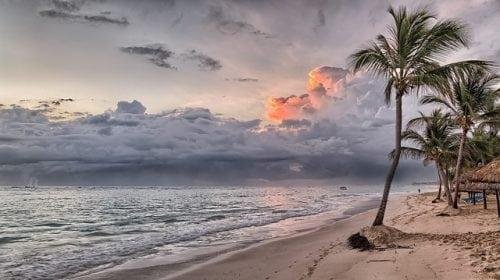Xentavo, a Miami-based startup, wants to convince Belize, the Dominican Republic and other small countries to use blockchain for government services and eventually create their own national cryptocurrencies.
Xentavo has already signed memorandums of understanding with three potential “small state” customers to use its platform, although it would not identify them. The World Bank characterizes small states as countries or nations with populations of fewer than 1.5 million people, limited human capital and a confined or isolated land area. Besides Belize and the Dominican Republic, other examples could include Iceland, Malta, Qatar and Swaziland.
Describing itself as a white label blockchain framework for sovereign digital cash systems, Xentavo said it can initially facilitate payments in small states with its Xen token. Those nations’ governments can use the technology to manage smart contracts for various services and to eventually create their own national cryptocurrencies.
Why Small States?
Blockchain projects are already underway in governments of large countries such as the U.S., but they are mostly at the state level, including in Delaware and Illinois. Robert Koenig, Xentavo’s founder and CEO, tells ThirtyK that blockchain adoption may prove more feasible at the federal level in smaller countries. That’s partly because these nations tend not to have big bureaucracies that can slow the decision-making process.
The World Bank has identified 50 small states globally. Concentrating on those customers could give Xentavo a head start on vendors that primarily target large enterprises or government entities.
Koenig adds that blockchain also can be used to address unique problems in small countries. He points to Belize, where several correspondent banks have withdrawn from the country over the last few years.
“They have to go through Europe because there’s no American correspondent bank left,” he says. “As a result, business life can be very difficult. If you’ve got a local currency on a blockchain, you can issue a loan within seconds.”
Small states like the Dominican Republic, meanwhile, lack strong land registry systems, Keonig says. That means someone can claim to have bought a property even if someone else has been living on it for generations. “As an individual, you have no means to argue otherwise,” he says.
Civic Service Transformation
Previous Articles:
- UK’s FCA Issues Guidance To Banks Detailing Cryptocurrency Dangers
- FATF To Consider Binding Rules For Cryptocurrency Exchanges
- An Old Crime in New Clothes: Hackers Demanding Bitcoin Ransom
- Lithuania Issues ICO Guidelines, Deems Tokens To Be Securities
- Wells Fargo Says No To Credit Card Crypto Procurement

